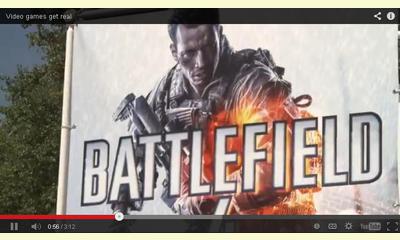|
|
Video games and law of war: International Committee of the Red Cross
un articulo por International Committee of the Red Cross
Video: Video games and law of war
War packaged for recreational consumption enthrals
children and adults worldwide. For the military,
these "electronic first-person shooter games"
offer a great resource to adapt for training. The
ICRC has started working with video game
developers, so that video game players face the
same dilemmas as real soldiers.

click on photo to enlarge
International humanitarian law and video games:
questions and answers
The ICRC believes there is a place for
international humanitarian law (the law of armed
conflict) in video games. The International Red
Cross and Red Crescent Movement has publicly
stated its interest in the implications of video
games that simulate real-war situations and the
opportunities such games present for spreading
knowledge of the law of armed conflict. The
rules on the use of force in armed conflict should
be applied to video games that portray realistic
battlefield scenes, in the same way that the laws
of physics are applied.
What exactly does the ICRC want to see in these
video games?
The ICRC is suggesting that as in real life, these
games should include virtual consequences for
people's actions and decisions. Gamers should be
rewarded for respecting the law of armed conflict
and there should be virtual penalties for serious
violations of the law of armed conflict, in other
words war crimes. This already exists in several
conflict simulation games. Game scenarios should
not reward players for actions that in real life
would be considered war crimes.
The ICRC is concerned that certain game scenarios
could lead to a trivialization of serious
violations of the law of armed conflict. The fear
is that eventually such illegal acts will be
perceived as acceptable behaviour. However the
ICRC is not involved in the debate about the level
of violence in video games.
What are some of the violations of the law of
armed conflict that are of particular concern?
The ICRC is concerned about scenarios that, for
instance, depict the use of torture, particularly
in interrogation, deliberate attacks on civilians,
the killing of prisoners or the wounded, attacks
on medical personnel, facilities, and transport
such as ambulances, or that anyone on the
battlefield can be killed.
Should video games be prohibited from depicting
such acts?
Sanitizing video games of such acts is not
realistic. Violations occur on real battlefields
and can therefore be included in video games. The
ICRC believes it is useful for players to learn
from rewards and punishments incorporated into the
game, about what is acceptable and what is
prohibited in war.
[Note: Thank you to Cecile Barbeito Thonon, the CPNN reporter for this article]
(This article is continued in the discussionboard)
( Click here for the French version of this article)
|








|
DISCUSSION
Pregunta(s) relacionada(s) al artículo :
What should be done about violent video games?,
* * * * *
Comentario más reciente:
(The following is continued from the main article listed above.)
Does this also apply to more fantasy oriented war games?
No, the ICRC is talking about video games that simulate real-war situations. It is not suggesting that this apply to games that portray more fictional scenarios such as medieval fantasy or futuristic wars in outer space.
A few media reported that certain virtual acts performed by characters in video games could amount to serious violations of the law of armed conflict. Is this correct?
No. Serious violations of the laws of war can only be committed in real-life. A person cannot commit a war crime simply by playing a video game.
Why is the ICRC interested in video games that simulate real warfare?
The ICRC is interested in issues relating to video games simulating warfare because players can face choices just like on a real battlefield.
States are obliged to respect and ensure respect for the law of armed conflict and to make its rules known as widely as possible at all times. In real life, armed forces are subject to the laws of armed conflict. Video games simulating the experience of armed forces therefore have the potential to raise awareness of the rules that those forces must comply with whenever they engage in armed conflict – this is one of the things that interests the ICRC. . ... continuación.

|
|









